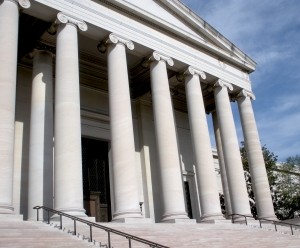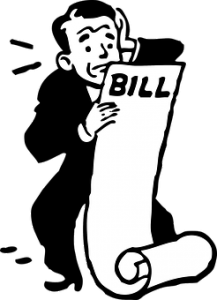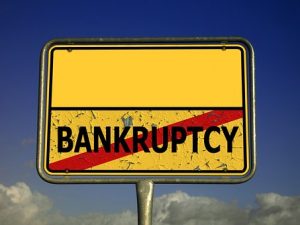The Small Business Reorganization Act and Subchapter 5 Bankruptcies
Hi, I’m Rob Chewning. I work with the firm of McLaughlin & Nardi, LLC. At the firm we practice several different types of law, including bankruptcy law. I am here today to talk to you about The Small Business Reorganization Act and Subchapter 5 bankruptcies.
As a result of COVID-19, millions of small businesses have been forced to shut down and cease business operations indefinitely with no end in sight. Some of these small businesses have tried to hold on in the hope of getting federal stimulus money that can carry them through this tough time. However, there are several million other businesses which will not be eligible or will not be able to get their hands on this federal stimulus money which is causing them to consider the options that they have.
 New Jersey Lawyers Blog
New Jersey Lawyers Blog


 Naturally, this has led to a spike in bankruptcy filings. However, many small businesses have held out hope for federal stimulus aid before deciding on whether bankruptcy is the right option for them.
Naturally, this has led to a spike in bankruptcy filings. However, many small businesses have held out hope for federal stimulus aid before deciding on whether bankruptcy is the right option for them. Since the COV-19 outbreak began, more than 22 million Americans have filed for unemployment. The increase in unemployment filings have been the result of businesses of all sizes being forced to shut down entirely or significantly limit their operations. As a result, many people, both employers and employees, are seeing less income or no income at all while still being expected to pay their monthly payments such as rent, mortgage, car loan, credit card bills, and insurance. These financial obligations are especially devastating for people and businesses that were already having trouble making those monthly payments prior to the COV-19 outbreak.
Since the COV-19 outbreak began, more than 22 million Americans have filed for unemployment. The increase in unemployment filings have been the result of businesses of all sizes being forced to shut down entirely or significantly limit their operations. As a result, many people, both employers and employees, are seeing less income or no income at all while still being expected to pay their monthly payments such as rent, mortgage, car loan, credit card bills, and insurance. These financial obligations are especially devastating for people and businesses that were already having trouble making those monthly payments prior to the COV-19 outbreak. Representing parties negotiating contracts and litigating over breach of contracts are some of our attorneys’ main practice areas. New Jersey contract law recognizes both contracts and “quasi-contracts.” This post examines what these are and the differences between them.
Representing parties negotiating contracts and litigating over breach of contracts are some of our attorneys’ main practice areas. New Jersey contract law recognizes both contracts and “quasi-contracts.” This post examines what these are and the differences between them. In the case of
In the case of  Bankruptcy provides relief to a debtor who may be struggling to keep a house, keep the lights on, or pay credit card or medical bills. The relief provided is in the form of an automatic stay, exemptions to protect your most essential assets, and a discharge of a portion of the debtor’s debts. It is important to determine to understand the benefits and limitations of the relief that bankruptcy provides before you make the decision to file for bankruptcy.
Bankruptcy provides relief to a debtor who may be struggling to keep a house, keep the lights on, or pay credit card or medical bills. The relief provided is in the form of an automatic stay, exemptions to protect your most essential assets, and a discharge of a portion of the debtor’s debts. It is important to determine to understand the benefits and limitations of the relief that bankruptcy provides before you make the decision to file for bankruptcy.